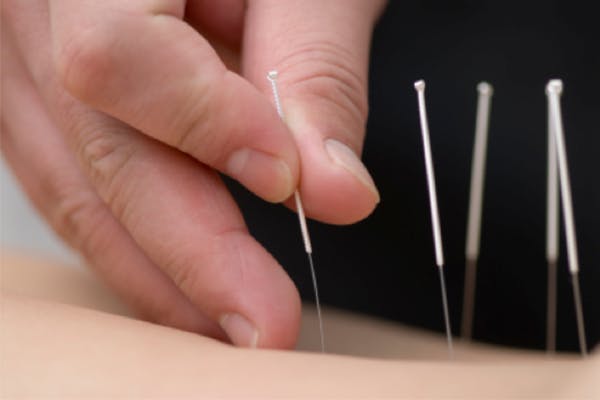By: Dr. Richard DeFalco, DPT, OCS, CSCS, CWcHP, Cert. DN
A few months back I wrote an article that discussed the newest service offered at Professional Rehabilitation Services (PRS), dry needling for pain management, soft tissue dysfunction, and trigger points. I felt the need to re-visit the topic because of the enormous success we have been having at all three of our clinic locations. The results have surpassed our initial expectations and we are proud to be able to offer to the communities extending from Georgetown to North Myrtle Beach to Carolina Forest. So let us take a minute to revisit what dry needling some of the conditions we have been experiencing great results with.
To understand how dry needling can be an effective technique to reduce pain and promote healing of neuromusculoskeletal injuries we must first understand what happens when an injury is sustained. Injuries to tissues are caused by varying degrees of stress, ranging from repetitive overuse, to sudden high velocity traumatic forces.
When an injury is sustained, our tissues go through a healing process that starts with inflammation/swelling and ends with reconstruction of the injured tissue. It is during this healing process, where inflammation, contracture of tissues, formation of adhesions between neighboring tissues, and scar formation become the causes of chronic soft tissue dysfunction, trigger points (a taut band of skeletal muscle that is palpably tender, and commonly has referred pain associated with it) and persistent pain. These changes result in blockage of fluid into and out of an area, as well as a decrease in blood circulation. The tissues that we are speaking of include muscles, tendons, ligaments, bursae, capsules, fascia, nerves, blood and lymphatic vessels. Injured tissues eventually become weakened and deformed due to a lack of nutrition, resulting in increased pain, disuse, and altered movement patterns. These symptoms eventually become chronic, meaning they last longer than six months. They become painful most of the time, but more so with activities.

Dry needling is a process by which fine gauge solid filament needles are inserted into the symptomatic dysfunctional areas and trigger points to create tiny lesions in the underlying soft tissue and release trigger points respectively. These lesions stimulate the body’s natural response of healing by way of secretion of molecular proteins to the affected areas and stimulation of the central nervous system to create an anti-inflammatory reaction. Because the needles are of an extremely fine gauge, the procedure has minimal to no pain associated with it.
Some examples of the conditions we are treating successfully in the clinics are plantar fasciitis, achilles tendonitis/tendinopathy, lateral epicondylitis (tennis elbow), medial epicondylitis (golfers elbow), rotator cuff tendinopathy, knee pain, neck pain, headaches, and sciatica. We are very excited about the success thus far that patients are experiencing with dry needling. It is yet another method by which we can treat patients who may have otherwise had limited options to address their soft tissue injury and pain in the past and have just had to “learn to live with it.”
At Professional Rehabilitation Services we pride ourselves in distinction, and one of our Board Certified Orthopedic Physical Therapists will pursue an individualized treatment approach to your needs that may or may not include dry needling as a treatment option. Less than 5% of physical therapists in South Carolina are board certified in orthopedics. All physical therapists at Professional Rehabilitation Services are board certified. So if you or someone you know is having musculoskeletal pain and would like to know more about dry needling or other physical therapy options, seek the consultation of a physical therapist at one of our three locations or see your physician for a referral to one of our facilities.
At Professional Rehabilitation Services, we treat a wide variety of musculoskeletal conditions using the latest in evidence based therapies provided by highly credentialed physical therapists. In addition to being licensed physical therapists, our providers have additional specialty certifications and training in orthopedics, manual therapy, sports, strength and conditioning, vestibular treatment, and now dry needling. For further information on this or other related topics you can contact Richard DeFalco, DPT, OCS, CSCS, CWcHP, Cert. DN at Professional Rehabilitation Services (Myrtle Beach) (843) 839-1300, Brian P. Kinmartin PT, DPT, MTC, OCS, STC, CWcHP, Cert. DN, (Pawleys Island) (843) 235-0200, or Richard A. Owens, PPT, MS, OCS, Cert. SHT, CWcHP, Cert DN (Surfside) (843) 831-0163, or visit our website at www.prsrehabservices.com where you can learn more about the company and even download a referral form for you physician to fill out. You can also call and schedule a free 15 minute consultation!
